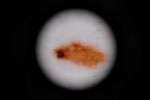 Doctors @ Teneriffe Skin Cancer Clinic provides quality and personalised skin cancer services including early detection, prevention and management of skin cancers. We are located in the heart of Teneriffe on Florence street and service the inner Brisbane suburbs.
Doctors @ Teneriffe Skin Cancer Clinic provides quality and personalised skin cancer services including early detection, prevention and management of skin cancers. We are located in the heart of Teneriffe on Florence street and service the inner Brisbane suburbs.
The doctors in our skin cancer clinic have undertaken postgraduate training in skin cancer medicine and are Fellows of the Australian College of General Practitioners who have special interest in skin cancer detection and management. Dr Chris Hannon, MBBS, FRACGP has a Diploma in Skin Cancer Medicine and Dr Dora Lee, B PHTY MBBS, FRACGP holds a Certificate of Skin Cancer Medicine.
Your skin cancer doctors assess any suspicious lesions with the use of a dermascope which enables the doctor to see your suspicious moles at a microscopic level. High resolution details can be seen with a dermascope that may not be obvious with naked eye and the picture can be photographed and saved for future monitoring and comparison.
Workplace onsite skin checks are also available.
Types of Skin Cancer & Skin Lesion
 Dark, with irregular edges, forms in pigment cells. Highly aggressive skin cancer that can kill.
Dark, with irregular edges, forms in pigment cells. Highly aggressive skin cancer that can kill.
 Red, scaly bump, sometimes crusty and has the potential to metastasise to other organs.
Red, scaly bump, sometimes crusty and has the potential to metastasise to other organs.
 Pearly and translucent, fleshy colour with tiny blood vessels, sometimes manifest as a non-healing ulcer.
Pearly and translucent, fleshy colour with tiny blood vessels, sometimes manifest as a non-healing ulcer.
 Present only in the top skin layer, slow growing and can turn into a squamous cell carcinoma.
Present only in the top skin layer, slow growing and can turn into a squamous cell carcinoma.
 Dry, rough, firm spots on the skin. Not cancerous.
Dry, rough, firm spots on the skin. Not cancerous.
• Skin cancer accounts for around 80% of newly diagnosed cancers
• Australia has the highest incidence of skin cancer in the world
• 2 out of 3 Australians will be diagnosed with skin cancer by the age of 70
• Early detection of skin cancer can save lives!
• People aged 50 years or more have the highest rate of skin cancers
• 90% of skin cancers are caused from UV Radiation from sun exposure
What are the Signs of Possible Skin Cancers?
• Any changes of a skin spot which includes a mole that has darkened, lightened, increased in size or change in shape
• A new spot that has not been there previously
• A non-healing ulcer or sore
• A skin lesion that itches or bleeds
• A small lump that is pearly and pink
• Any lesions that you are concerned about
If you see any of these suspicious signs see your Skin Cancer Doctor @ Teneriffe. Your doctor will examine the spots you are concerned about as well as doing a thorough skin check. Skin cancers are often the spots that you may not have noticed but can be detected by doctors experienced in skin cancer medicine.
What happens when the doctor finds a lesion suspicious for skin cancer?
There are a number of ways to manage suspicious lesions. A common way is to take a biopsy of the skin to confirm the diagnosis. A biopsy is a simple and quick procedure. Firstly, local anaesthetic is given to numb the area. A biopsy can be taken using a circular cutter, usually about 4mm wide, which we call “punch biopsy” and a suture may be put in place. Biopsy can also be done with a thin shave and no sutures will be required. A biopsy generally leaves minimal scars. The tissue is then sent off to laboratory where a pathologist examines the suspicious lesion under a microscope. The results will usually be back within a few days.
If your lesion looks typical of a skin cancer, definitive management options such as an excision or other non-surgical treatments will be discussed.
There are many treatment options for a skin cancer and the Doctors @ Teneriffe Skin Cancer Clinic will consider your individual factors when formulating your treatment option. The treatment options will depend on what type of skin cancer it is, where the cancer is located as well as the size of the cancer. Our skin cancer doctors will consider these factors and present an individually tailored treatment option that optimises the cosmetic result and healing. Doctors @ Teneriffe liaise closely with local plastic surgeons for management of complicated skin cancer surgery.
The fee for a standard skin check is $100 on a weekday, of which $39.75 will be rebatable from Medicare. The standard fee on the weekend is higher. Sometimes, a long consult is required for patients who have multiple moles that requires photographic imaging or significant skin cancer history and a higher fee may incur. In this case a higher Medicare rebate is claimable. Concessions are available for Pensioners.
For procedures, Medicare has a set fee schedule depending on what procedure has been done as well as the size, the location and histology result of the skin lesion. Your out of pocket gap is usually no more than $100. If the gap is higher, your doctor will discuss with you at the time of booking.
What Happens When You Book For an Appointment?
Please wear clothing that is easy to remove and no make-up, fake tan or nail polish when you attend your skin cancer assessment consultation. Both male and female skin cancer doctors are available and please inform our friendly receptionist if you have a preference. The doctor will take relevant medical and skin cancer history and skin type assessment to determine your risk of skin cancer followed by a comprehensive head to toe skin check. Magnification, dermoscopy and digital photography is used where necessary to assist with the assessment.
If no suspicious lesions are found, an appropriate future recall system will be put into place depending on the assessment of your future risk and your doctor will discuss with you on future skin cancer prevention and awareness.
If suspicious lesions are detected, the doctor will discuss and recommend options for management of the suspicious lesions. This may include digital monitoring, biopsy, excision or non-surgical managements.
Doctors @ Teneriffe Skin Cancer Clinic undertake skin excisions onsite in a fully equipped minor ops treatment room. The doctors are able to do grafts or flaps where necessary to minimise skin tension or optimise cosmetic results.
 Doctors @ Teneriffe Skin Cancer Clinic provides quality and personalised skin cancer services including early detection, prevention and management of skin cancers. We are located in the heart of Teneriffe on Florence street and service the inner Brisbane suburbs.
Doctors @ Teneriffe Skin Cancer Clinic provides quality and personalised skin cancer services including early detection, prevention and management of skin cancers. We are located in the heart of Teneriffe on Florence street and service the inner Brisbane suburbs. Dark, with irregular edges, forms in pigment cells. Highly aggressive skin cancer that can kill.
Dark, with irregular edges, forms in pigment cells. Highly aggressive skin cancer that can kill. Red, scaly bump, sometimes crusty and has the potential to metastasise to other organs.
Red, scaly bump, sometimes crusty and has the potential to metastasise to other organs. Pearly and translucent, fleshy colour with tiny blood vessels, sometimes manifest as a non-healing ulcer.
Pearly and translucent, fleshy colour with tiny blood vessels, sometimes manifest as a non-healing ulcer. Present only in the top skin layer, slow growing and can turn into a squamous cell carcinoma.
Present only in the top skin layer, slow growing and can turn into a squamous cell carcinoma. Dry, rough, firm spots on the skin. Not cancerous.
Dry, rough, firm spots on the skin. Not cancerous.

